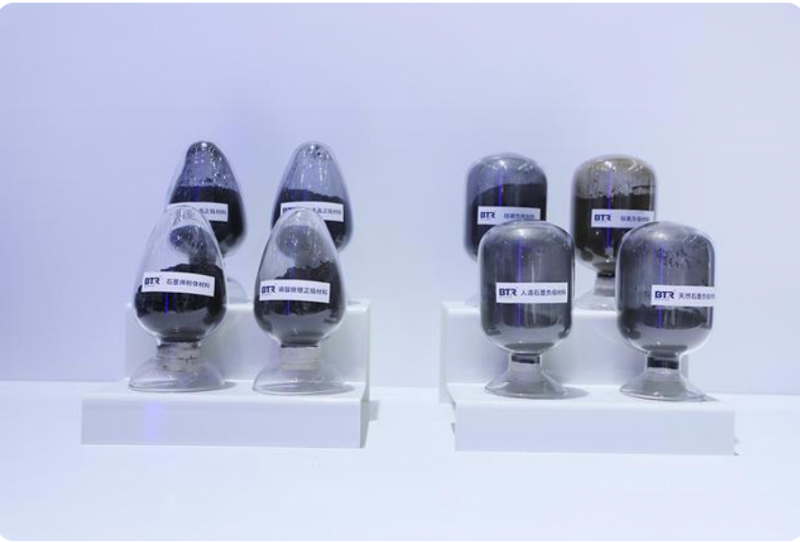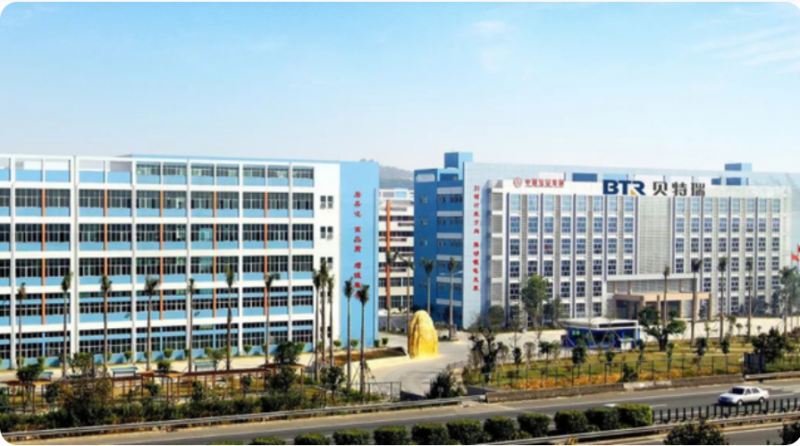
With the rapid development of new energy vehicles, the lithium battery industry is advancing simultaneously. As one of the four key materials, the anode material is also ushering in a broader market space. Data show that the size of China's lithium battery materials market last year was 14.02 billion yuan, with an average annual compound growth rate of 21.4% in the past five years. It is expected to reach 15.91 billion yuan in 2021, and this figure will further increase to 17.63 billion yuan next year.
China is the world's largest producer and marketer of anode materials for lithium batteries, with a market share of 70%. The industry has emerged from giants such as Beterui, Putailai, Shanshan, and Xiangfenghua. Among them, BTR has ranked first in the world in terms of shipments for eight consecutive years. In the first three quarters of 2021, it realized operating income of 6.851 billion yuan and net profit of 1.090 billion yuan, an increase of 154.18% and 207.91% year-on-year respectively. As of December 13, the company's market value reached 77.875 billion yuan.


This is a company founded in the millennium and headquartered in Guangming New District, Shenzhen. Integrating basic research, product development, production and sales, the main business is lithium-ion battery materials and carbon nanomaterials. Products include natural graphite, artificial graphite, silicon-based and other anode materials; high-nickel ternary, lithium iron phosphate and other cathode materials , Widely used in new energy vehicle power batteries, consumer electronics batteries, energy storage batteries and other fields.
At the beginning, Beterui was just a small enterprise with only input but no output, quietly working in the subdivision of battery anode materials. At the 2002 China International High-tech Achievements Fair, based on the main business direction of new materials and the resume of the founding team, he was chosen by Baoan Group Investment Manager He Xueqin (current Chairman of Beiterui). With China's Baoan's capital injection, Beterui has since entered the fast lane.
For a long time in the past, Japanese companies have firmly controlled the battery raw material market. As early as the early 90s of last century, Sony produced lithium cobalt oxide batteries at a rate, and Japanese companies once monopolized more than 90% of the lithium-ion battery market share. They sell raw materials at high prices through market monopoly advantages and technical barriers, and Chinese lithium battery companies can only passively endure the slaughter.
Beterui set its sights on modified natural graphite and became the first company in China to use natural graphite as anode material for lithium batteries. In 2004, it launched the natural graphite anode material 818, opening the way for domestic substitution. Two years later, it achieved the first domestic market share.
Among the top ten global lithium battery anode material shipments in 2012, Japan's Hitachi Chemical, Japan Carbon, and JFE took the top three, and China only had two companies including Bettere and Shanshan on the list. As of last year, Beterui, Jiangxi Zichen and Shanshan occupied the top three positions, accounting for 57% of the total. Only two Japanese companies were shortlisted. The former boss Hitachi Chemical dropped to eighth and Mitsubishi Chemical ranked tenth.
The reason is that the conservative attitude and closed ecology of Japanese companies have missed the dividends of the new energy vehicle market. In contrast, Chinese companies are taking advantage of the east wind to accelerate the domestic substitution of power batteries and anode materials, and the benefits brought by them are reinvested in research and development, forming a positive cycle.
Beterui is the only new energy material company in the world that has a complete graphite industry chain (from graphite ore mining to natural graphite anode products). It has covered international customers such as Samsung SDI, LGES, SKI, Murata, and domestic battery manufacturers such as Ningde Times, Guoxuan Hi-Tech, Lishen, and Yiwei Lithium. In 2017, they passed the certification of Panasonic's power battery and used it to cut into the Tesla battery industry chain, becoming the only domestic negative electrode supplier in the Tesla industry chain.




 CONTACT US
CONTACT US ICC APP
ICC APP
